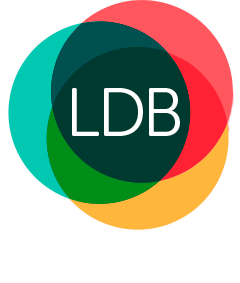What are the Australian tax requirements and implications of running a Kickstarter?
December 4, 2018

You have a great idea, maybe for a new electronic gadget or an arts project, but it’s going to take some serious money to get the project off the ground. Where’s that money going to come from?
In recent years, a number of artists and entrepreneurs have answered that question via crowdfunding.
There are different types of crowdfunding platforms. Some offer equity in the project while others are debt-based, where the contribution is a loan. There are also donation-based platforms.
However, perhaps the most popular type of crowdfunding for creative projects, including product design and development, is the reward-based model by companies such as Kickstarter.
The concept is quite simple. Creators (promoters) post details of their ideas on the website, including their funding goal and a list of rewards.
If the project is to create a music album the reward might be the finished CD.
If it’s a solar powered espresso machine, generous backers may receive a machine once it goes into production. Smaller contributions might be rewarded with a branded coffee cup.
Backers then pledge money to projects they like.
If the funding goal is reached, the creator receives the money and, in due course, the backers receive their rewards.
What about tax?
OK, your Kickstarter campaign was a success, your project easily met its funding threshold and the money has been paid into your bank account. Do you have to pay tax on it?
It all depends on whether the project sees you carrying on a business and if you intend to make a profit long-term.
You don’t need to already be operating the business or even have worked out how you will make a profit.
When you launch your venture, you just have to expect to make a profit and operate in a business-like way.
If that’s the case, your reward-based crowdfunding exercise creates an obligation to deliver goods or services. It’s just part of the business of making sales.
The money received through crowdfunding is assessable and subject to tax.
On the other hand, business expenses will be deductible.
As for the timing of that tax, if your accounts operate on a cash basis, the income is usually recognised when the money is received.
Under the accrual method, the income may not be derived until the goods and services are actually supplied.
This may be months, or possibly even years after the crowdfunding money hits your bank account.
Not-for-profit
If there is no intention for the project to generate a profit and is more of a hobby or a community project, then the income is unlikely to be taxable. In this case, expenses won’t be deductible.
Keep records and seek advice
Whether for profit or not, it’s a good idea to write an intention early in the process.
You should also keep detailed financial records and ensure all assessable income is reported in the annual tax return.
These basic rules apply to reward-based crowdfunding. Different treatments apply to debt-based and donation-based crowdfunding. The ATO website provides further details.
Your choice of business structure may also have a significant bearing on how income from crowdfunding is taxed.
Need help?
Before your crowdfunding plans become too advanced, talk to LDB.
Our experts in tax and business structures can help to set you on the right path.
Call us on (03) 9875 2900 or fill in the contact form below and we’ll be in touch.
